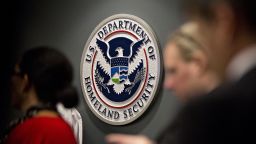Hundreds of millions of devices around the world could be exposed to a newly revealed software vulnerability, as a senior Biden administration cyber official warned executives from major US industries Monday that they need to take action to address “one of the most serious” flaws she has seen in her career.
As major tech firms struggle to contain the fallout, US officials held a call with industry executives warning that hackers are actively exploiting the vulnerability.
For now, cybersecurity analysts told CNN, the pressure is on tech companies to clean up their software code and on big businesses to figure out if they are affected by the flaw. But because the vulnerability is so widespread, and likely present in things like popular apps and websites, consumers could also feel the fallout if those services get hacked.
“This vulnerability is one of the most serious that I’ve seen in my entire career, if not the most serious,” Jen Easterly, director of the US Cybersecurity and Infrastructure Security Agency (CISA), said on a phone call shared with CNN. Big financial firms and health care executives attended the phone briefing.
“We expect the vulnerability to be widely exploited by sophisticated actors and we have limited time to take necessary steps in order to reduce the likelihood of damaging incidents,” Easterly said.
CNN has reached out to CISA for comment on the call. CyberScoop, a technology news site, first reported on contents of the call.
It’s the starkest warning yet from US officials about the software flaw since news broke late last week that hackers were using it to try to break into organizations’ computer networks. It’s also a test of new channels that federal officials have set up for working with industry executives after the widespread hacks exploiting SolarWinds and Microsoft software revealed in the last year.
Experts told CNN it could take weeks to address the vulnerabilities and that suspected Chinese hackers are already attempting to exploit it.
The vulnerability is in Java-based software known as “Log4j” that large organizations, including some of the world’s biggest tech firms, use to log information in their applications. Tech giants like Amazon Web Services and IBM have moved to address the bug in their products.
It offers a hacker a relatively easy way to access an organization’s computer server. From there, an attacker could devise other ways to access systems on an organization’s network.
The Apache Software Foundation, which manages the Log4j software, has released a security fix for organizations to apply.
Race against time to address flaw
But attackers had more than a week’s head start on exploiting the software flaw before it was publicly disclosed, according to cybersecurity firm Cloudflare.
Organizations are now in a race against time to figure out if they have computers running the vulnerable software that were exposed to the internet. Cybersecurity executives across government and industry are working around the clock on the issue.
“We’re going to have to make sure we have a sustained effort to understand the risk of this code throughout US critical infrastructure,” Jay Gazlay, another CISA official, said on the phone call.
Chinese-government linked hackers have already begun using the vulnerability, according to Charles Carmakal, senior vice president and chief technology officer for cybersecurity firm Mandiant. Mandiant declined to elaborate on what organizations the hackers were targeting.
“Over time, everybody can arm the damn thing,” Mandiant CEO Kevin Mandia told CNN, referring to the vulnerability. “That’s the problem. And there’ll probably be great hackers hiding in the noise of the not so great.”
The “noise” is a real problem. For cybersecurity professionals, Twitter has been a constant churn of both useful information and, in some cases, misinformation that has nothing to do with the vulnerability.
To address the issue, CISA said it would set up a public website with information on what software products were affected by the vulnerability, and the techniques that hackers were using to exploit it.
“This will be a multiweek process where new actors are exploiting the vulnerability,” Eric Goldstein, CISA’s executive assistant director for cybersecurity, said on the phone call.
The ubiquity of the software forced cybersecurity professionals around the country to spend the weekend checking if their systems are vulnerable.
“For most of the information technology world, there was no weekend,” Rick Holland, chief information security officer at cybersecurity firm Digital Shadows, told CNN. “It was just another long set of days.”
CNN’s Geneva Sands contributed reporting.
![This photo taken on August 4, 2020 shows Prince, a member of the hacking group Red Hacker Alliance who refused to give his real name, using his computer at their office in Dongguan, China's southern Guangdong province. - From a small, dingy office tucked away in an industrial city in southern China, one of China's last "volunteer hacker" groups maintains a final outpost in its patriotic hacking war. (Photo by NICOLAS ASFOURI / AFP) / TO GO WITH China-hacking-security,FOCUS by Laurie Chen / The erroneous mention[s] appearing in the metadata of this photo by NICOLAS ASFOURI has been modified in AFP systems in the following, we removed the HOLD HOLD HOLD in the main caption. Please immediately remove the erroneous mention[s] from all your online services and delete it (them) from your servers. If you have been authorized by AFP to distribute it (them) to third parties, please ensure that the same actions are carried out by them. Failure to promptly comply with these instructions will entail liability on your part for any continued or post notification usage. Therefore we thank you very much for all your attention and prompt action. We are sorry for the inconvenience this notification may cause and remain at your disposal for any further information you may require. (Photo by NICOLAS ASFOURI/AFP via Getty Images)](https://media.cnn.com/api/v1/images/stellar/prod/210621154549-hackers-keyboard.jpg?q=x_0,y_131,h_1419,w_2523,c_crop/w_850)
![This photo taken on August 4, 2020 shows Prince, a member of the hacking group Red Hacker Alliance who refused to give his real name, using his computer at their office in Dongguan, China's southern Guangdong province. - From a small, dingy office tucked away in an industrial city in southern China, one of China's last "volunteer hacker" groups maintains a final outpost in its patriotic hacking war. (Photo by NICOLAS ASFOURI / AFP) / TO GO WITH China-hacking-security,FOCUS by Laurie Chen / The erroneous mention[s] appearing in the metadata of this photo by NICOLAS ASFOURI has been modified in AFP systems in the following, we removed the HOLD HOLD HOLD in the main caption. Please immediately remove the erroneous mention[s] from all your online services and delete it (them) from your servers. If you have been authorized by AFP to distribute it (them) to third parties, please ensure that the same actions are carried out by them. Failure to promptly comply with these instructions will entail liability on your part for any continued or post notification usage. Therefore we thank you very much for all your attention and prompt action. We are sorry for the inconvenience this notification may cause and remain at your disposal for any further information you may require. (Photo by NICOLAS ASFOURI/AFP via Getty Images)](https://media.cnn.com/api/v1/images/stellar/prod/210621154549-hackers-keyboard.jpg?q=x_0,y_131,h_1419,w_2523,c_crop/w_250)


















